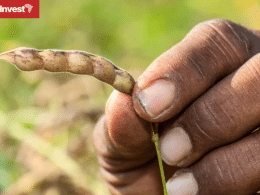The Alliance for a Green Revolution in Africa (AGRA) President, Dr. Agnes Kalibata, has recently visited Tanzania to review progress on the small-scale farmers and smallholders’ grain storage project undertook in 2014 and to launch a new 5-year business plan to enhance food security and farmers’ income.
The visit follows an announcement by AGRA’s Tanzania Country Head, Dr. Mary Mgonja, whom explained that Dr. Kalibata’s visit to Tanzania aimed at empowering small-scale farmers and smallholders to ensure the country and continent’s food security while using agriculture as a driver of regional economic growth.
AGRA is delighted with the progress made by Tanzania on improving the post-harvest losses and grain storage by the usage of innovative technologies as hermetic cocoons, metal silos and Purdue Improved Cowpeas (PICs) bags, explained Dr. Mgonja.
These three technologies have helped to keep high levels of harvest on key food crops benefiting 4,200 farmers in Ruvuma, Singida, Mbeya, Njombe, Dodoma, and Babati regions avoiding post-harvest losses of up to 40%, Dr. Mgonja added.
According to AGRA, the three technologies were part of a two-year project that sought to end with the post-harvest losses in Tanzania after a better application of practices by small-scale farmers and smallholders drove to a harvest surplus of 14.38 million metric tonnes of crops in 2013.
This situation yields to the necessity of not only improved storage facilities to reduce post-harvest losses but also to raise capacity storage.
This is why the government plans to raise the National Food Reserve Agency (NFRA) capacity storage from the current 450,000 tonnes to 750,000 tonnes by 2017 to ensure that agriculture is a sustainable market for farmers’ crops according to the Ministry of Agriculture, Food Security and Cooperatives.
Tanzania has already improved its storage facilities and raised capacity in the last two years, however, the country still experiences a harvest surplus of 3 million metric tonnes of which 1 million is from maize and around 795,000 from rice.











